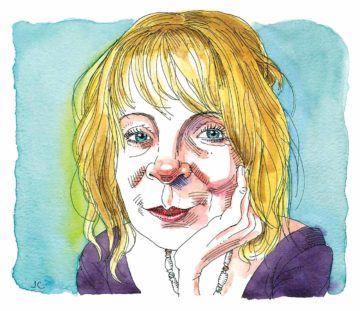Cora Currier at The Nation:
 The fact that our political and inner lives cannot be separated, that political and psychic struggle can and should be one and the same, is a twist on the classic feminist adage that the personal is political, and for Rose, it also derives from her psychoanalytic method. Along with Juliet Mitchell, she is one of the foremost advocates for the relevance of Freud to feminism, and On Violence and On Violence Against Women draws from many of her earlier works merging psychoanalysis and feminist critique. In Rose’s view, psychoanalysis illuminates the violence of men’s and women’s “allotted sexual roles,” which in turn shows why we cannot simply equate masculinity with violence. Taking aim at radical feminists like Catharine MacKinnon and Andrea Dworkin and contemporary writers of the trans-exclusionary ilk, Rose writes that “even while calling out masculinity in its worst guise, we allow to individual men the potential gap between maleness and the infinite complexity of the human mind.” In a similar vein, she notes that “it is because trans women [pry] apart the question ‘Who is a real woman?’ with such pain…that they should be listened to.” Across several chapters, she uses psychoanalysis and writing on trans experience to show places where this “stultifying ideology” of what men and women are meant to be breaks down. Faced with the expansion and proliferation of gender categories, which some people have found threatening, Rose is exhilarated.
The fact that our political and inner lives cannot be separated, that political and psychic struggle can and should be one and the same, is a twist on the classic feminist adage that the personal is political, and for Rose, it also derives from her psychoanalytic method. Along with Juliet Mitchell, she is one of the foremost advocates for the relevance of Freud to feminism, and On Violence and On Violence Against Women draws from many of her earlier works merging psychoanalysis and feminist critique. In Rose’s view, psychoanalysis illuminates the violence of men’s and women’s “allotted sexual roles,” which in turn shows why we cannot simply equate masculinity with violence. Taking aim at radical feminists like Catharine MacKinnon and Andrea Dworkin and contemporary writers of the trans-exclusionary ilk, Rose writes that “even while calling out masculinity in its worst guise, we allow to individual men the potential gap between maleness and the infinite complexity of the human mind.” In a similar vein, she notes that “it is because trans women [pry] apart the question ‘Who is a real woman?’ with such pain…that they should be listened to.” Across several chapters, she uses psychoanalysis and writing on trans experience to show places where this “stultifying ideology” of what men and women are meant to be breaks down. Faced with the expansion and proliferation of gender categories, which some people have found threatening, Rose is exhilarated.
more here.
